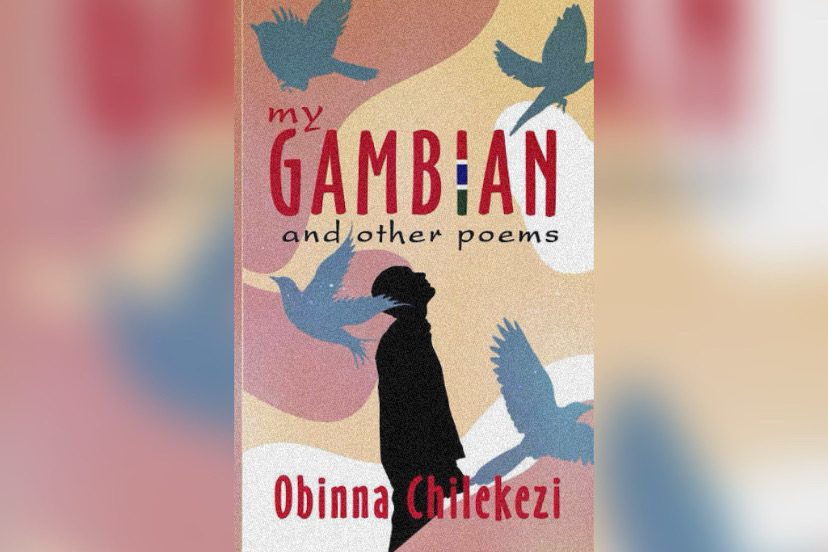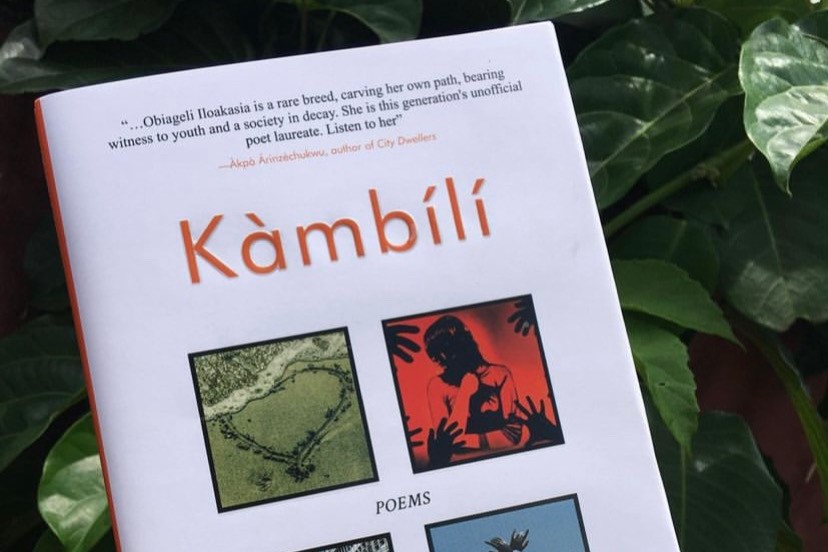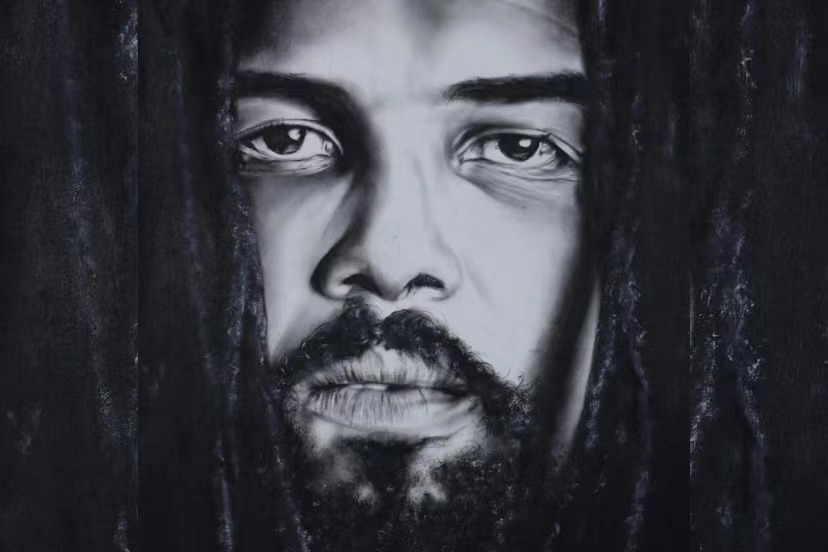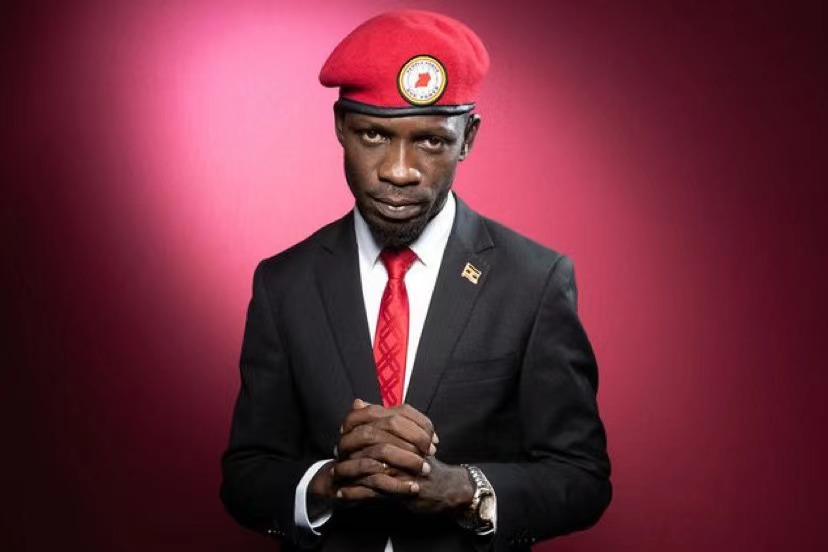John Chizoba Vincent is a film maker, Cinematographer, Video Producer and writer who resides in Lagos, Nigeria.
Book: A Song Of Endless Flames
Author: Usman Karofi and Collins Nosakhare
Publisher: Libretto Publishers
Year of publication: 2021
ISBN: 978 - 978 – 58196 – 7 - 0
Pages: 26
Reviewer: John Chizoba Vincent
A song of endless flames is a brilliant poetry book: engrossing yet heart wrecking, it is our sad reality but throbbing with life of its own, wise but never accidentally envisioned in its context. Its mood of rawness elevates the realism in our today’s world and yet it tries painting these realities like songs in such a way that a lay man could have it on his lips hoping for a change. Like Paul Liam rightly wrote: it reminds us of the forgotten purity of language of poetry and the aesthetics of Metaphor, of imageries of wisdom, weaved in lush philosophical pontification on the absurdist state of a nation in despair and endless flames. It is not cynical but soaked in a sadden and atrocious atmosphere that is so depressing, just like being inside a burning coal of fire, no hope.
The book is worth the price of a child, as lush as it is exact, but through its eyes comes whole worlds of hope, love, longing, perfection and exertion; it ever unending travails from being a child who is to learn how to crawl to a child who is to learn how to stand, walk, run, talk, fight for its right and finally becomes an adult with lots and lots of responsibilities and those responsibilities are very far from him or her to meet. He or she falls to raise again and expects to fall again and, sometimes when s/he falls, s/he never gets up as planned but that is natural anyway …What are we now? / Shepherds of our miseries/ with the palms of our souls/garnering paroxysm/questioning our existence. {page 5}
This and many others are what this book is to every eye that behold it. It tends to ferry you in a journey of songs and languages of a failed home, from the beginning of its fall to where we are currently holding on like a child who looks up to it thing being hold up high by an adult or rather like a maiden expecting something from her mistress. Both the Child and the maiden are restless until their expectations are granted to them. These are the type of expectations laced in this collection.
Here, the songs rendered are songs from the reinforced mouths of disenchanted patriots singing for the sorrow of their lost home though balanced yet in an elegy written in a jarred and creative melodies and verses. In it are verses of lost youths, aging parents, lost love, relish prophetic denouement, failed government, bitterness, unfavourable government policies and unemployment expressed in so many of its facets.
In the song of endless flames, Usman Karofi and Nosakhare Collins painted a comprehensive spectrum of our communal sociopolitical and factual dilemma as a people. While one, Usman, melancholic verses and stanzas tell a tale of lost home, imperfection, postcolonial era, bad leadership, humanity and lots of other themes. The other, Collins, is gentler and kinder, his words fluctuate, not precise but he’s intentional. In fact, their vivid descriptions through the atoll of our postcolonial uncertainty in attitudes, mannerism, imperfections and defensive of our individuality but encompassing to a society whose ego has been recked over the years, yet in the abundance of it all, still stand on its legs hoping to regain what has been lost and what is to come, is exclusive.
Its opulent is in the midst of a country saturated and braced by insurgencies, Election rigging, dominating of power by the upper class, banditry, Kidnaping, uncertainties and apparently unending doors of catastrophes; hitherto, we try so hard to conquer them with the last strings of optimism sagging before our very hold but to no avail. In fact, time does not heal everything rather it reduces the intricacies of that which has the power to kill the body but not the soul.
songs are not the permutation of silence to our unpolished nightmares suffocating as Nosakhare has written but it has become our realities, touching our open wounds. In this regard, not only do we feel neglected but rejected, too. In what if, Nosakhare makes himself the bearer and receiver of pains, a person who asks the questions we already know, a person who stands in the vacuum that we already knew existed between us but have no courage to stand for each other. A person who swallows what is left of our bodies yet confused on which part of his body those things swallowed are kept. In this confusion, he hides in the comfort of the night canvassing hope that he rarely has for himself. This drowning hope of his goes a little farther into where I am where his memories are more visible and tainted by the very understanding that not everything lost to the wind could be regained and for every human here, failure is certain.
He tends to let us know that where he stands is full of thorns. These thorns are the ones created by his countrymen to hurt his countrymen. These people that created these thorns don’t even care who gets hurt but the power ahead of them. They need this power by all means and they can do anything to grab it. Having seen his people lost their territories and their pride to many unknown forces and here he stands to fight back irrespective of what is at stake. He wants his people to be redeemed. In a short note to survive, he begins to gather himself with courage. We cannot pinpoint where this courage comes from but he emerges with it.
But, First, I do not come to weep and say farewell to death/ I came to hold on to what makes us love each other /And why we need to stay and survive/ second, I do not come to mourn a departure. {page 15}
Nosakhare is too direct with what he wants on his journey. And, no matter what he encounters in this journey, he is ready to bear it… I came to bring light and exfoliate its forlorn dirge/ I came to bear the truth on everyone’s ears/ and give the world its festival of peace.
Time, too, forget us is builds on the seasonal differences that life bestows on humanity. It is the poet’s grievances that enlighten the imperfection of humanity. It is time that differentiates us. It is time that separates us. It is time that makes and takes. Time heals. Time never stops. It keeps going and never waits for no one. And this is very clear from the voice of the poet.
On this note, man is guided by time which the poet tries in his angry voice to hide his frustration and blame time for being bias, for cheating some and favouring others but failed. Meanwhile, he, the poet, is as mischievous as a cheetah when he takes us away from his initial bitterness to a promising feat in When I cross This Ocean. He leaves us to think on which way would be better way to live instead of believing in the survival tale which somehow when laughter strains and only makes me {us} live.
Collins has a way he makes words run an errand for him without acknowledging them in his dealings with them. He fashions his melancholic voice in such a way that it tickles your ear like a love song that ends with the lover of the singer leaving him for another lover. This could be seen in a word of caution and comfort, Corona virus: the world’s about to end in your hands, Epilogue: thinking depression, the world’s silent when we died, sing and pray tonight, hear our prayers, this is not love and I shall live. He is between hope and depression, death and life, lie and truth, perfection and imperfection, his badness meeting the deadliest of a known Evil yet he maintains this calmness that seems so real and painful like dressing a fresh wound, patching a broken heart and fetching fire wood for those who need it to rekindle the fire of their homestead which has been down from the beginning.
However, Usman sings more like the Golden Crowned sparrow caught early between three distance worlds, from katsina to Kano and to Kaduna, rejecting a conventional existence of sort, and finding freedom, solace, comfort and rest from being the hardest creator of his own world of depression and misery waxed in the totality of what rottenness, selfishness and greed have caused us. In his irritation, he promises never to take it easy with anyone who has anyway deceived his people: When I decide to drop a bomb/ I will rhyme/the spins of hierarchy of our masters/who promised to protect us/ in drought and in rain/ in luxury and in pain/and remind them of the oath.
Irrespective of the sadness in his voice, he becomes Marie Josephe {Kaya Scodelario} trying to save the mermaid from being killed by her father, King Louis XIV {Pierce Brosnan} in the movie, the king daughter. But in this reality, he stands in the gap for his people with his songs to scream: I longed for the day to break that I may weave words in my heart and turn them to song of longing for beclouding the eyes of men in all nation shall dance to these songs in my voice.
Usman sings with his words in such a manner that leaves the reader angry and sad at the same time but unable to do anything to help the situation at hand. What a sad reality of things!
In the authenticity of his travails, he becomes the fountain that has to be source of life to those he fights for, a reminder that synthetically there is a conventional negativity against his people regarding the way the leaders have keep them for a very long time. In this conventional status quo a boundary is made and those above makes this boundary are so familiar that it hurts to learn that everybody is not recognizable. It has become a reflection din we’ve created in us.
I told mother that this is not a country
It’s a reflection din we’ve created in us
The peace we once yearned for
When we close our eyes at midday
Because night is a whale
We never wish to see
You may wonder why I reserved this for the last. This is because his kind of songs is one that never dies. It is the reality in which this whole book is built on.
In conclusion, Nosakhare and Usman have written a book that would stand in the testament of time even when everything becomes good in the nearest future, a song of endless flames would stay as a reminder to the generations to come that we once lived in a country that care less of her people and in a land that preferred blood poured on it than water. Usman Karofi and Nosakhare Collins are brilliant poets, and A song of endless flames is a wonderful book that would stand the test of time.
This is testimony!
BIO
John Chizoba Vincent is a Nigeria filmmaker, Music Video Director, Cinematographer, and Video Producer. Born and raised in Aba, Abia state, Nigeria. He had his education in Aba and Lagos, respectively. He has thrice been shortlisted {2017, 2018 and 2019} by EGC as one of the Poets who rock Nigeria. Also, in 2018, BN Blogs nominated him as one of the top five young Nigerian Poets to watch out from Nigeria. In July 2019, his poem was shortlisted on the top 10 finalist for Brigitte Poirson poetry Contest. His short film DISTRACTED was selected in a film festival in Sao Paulo, Brazil in 2022.
In 2020, two spoken Word videos he directed: To the girl I love by Seventy-eighth Psalmist and Iyami Osoronga by Gemini Aremo Balogun - won the PoetGist videos of the year in first and second position respectively.
Same year, he was among the top 10 filmmakers and top five video directors in 2021 and 2022 alongside Meji Alabi, NayaEffect, TG Omori, Director K and others on the BlackPride magazine award.
John Chizoba Vincent is the chief Editor of Boys Are Not Stones Initiative. An organization whose major aim is to advocate for the rights of the BoyChild. He is the founder of Philmant Universal Inc which houses Philm Republic Pictures, a sister Company, Philmax Books, Road House Review, and Zeal_30. He is also the photography editor for Libretto Magazine.
His writings have appeared in Libretto Magazine, Word Rhythm and Rhymes, MyAceWorld, Inner child Press, Kalahari Review, Tush stories, Tuck magazine, PoemifyPublishers, AfricanWriters, OpinionNigeria, PoetrySoup, Poemhunter, Voicenet, HelloPoetry, BoardSpeck, NgigaReview, Nanty Green and many others.
His poems, fictions and non-fictions have appeared in anthologies home and abroad including 84 Delicious Bottles of Wine for Wole Soyinka at 84 edited by Onyeka Nwelue and Odega Shawa, Wreaths for a Wayfarer for Pius Adesanmi edited by Nduka Otiono and Uche Umerurike, Kofi Annan Tributes for Kofi Annan and Arrow of Words – a tribute for Chinua Achebe edited by Izunna Okafor for Young Nigerian Writers Society.
He is the Author of Hard Times, Good Mama, Letter from Home, and For Boys of Tomorrow. John Chizoba Vincent lives in Lagos.










{{username}}{{commentConvertedTime}}
{{commentText}}